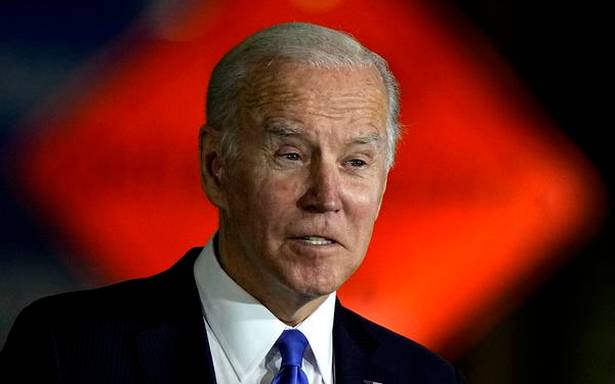Biden administration officials suggested that initiatives around corruption, election integrity and support for new and existing multilateral initiatives will emerge from the talks.
Over 100 countries, civil society actors, Members of Parliaments and the private sector have been invited to U.S. President Joe Biden’s Summit for Democracy on December 9 and December 10. However, it is unclear what, if any, binding commitments participating countries, including India, will announce.
Biden administration officials suggested that initiatives around corruption, election integrity and support for new and existing multilateral initiatives will emerge from the two plus days of talks. Concrete, binding commitments from participants do not, however, appear to be on the cards.
“ …One of the main points of the summit is simply to put this issue [ democracy] on the front burner,” a senior administration official told reporters on a briefing call on Monday. Following the summit, there would be “ a year of consultation, coordination and delivery,” that would result in new initiatives and pledges, the official said.
Last week the U.S. officials had told reporters that there would be a “ written, non-binding code of conduct” on human rights parameters for the export of technologies that could be used for repression.
This week, the U.S. released a strategy on countering corruption – new initiatives around this theme could be announced during the summit. Speaking to reporters on December 6, a senior administration official said the U.S. would also make an announcement on electoral integrity.
There is a second summit planned a year from this year’s events, where countries are expected to discuss progress on their commitments. However, the monitoring mechanism seems to rely on civil society actors holding governments accountable, rather than there being any binding mechanism that emerges from the discussions.
“ And our hope is that through the entirety of this process, we can really have a dialogue between participating governments and civil society, and that civil society will hold all of us accountable,” one official said during Monday’s briefing call. Another official said that coalitions like the Open Government Partnership (India is not a member) or the Universal Periodic Review (a periodic review of human rights records of U.N. member-states) could be leveraged for monitoring.
“ …We do intend to host this summit with humility,” one official said. “ We see ourselves as a democracy not with all of the answers, but with openness and transparency about our efforts to overcome challenges at home…”
The White House released a ‘ fact sheet’ saying the Biden administration is strengthening democracy at home, with details of its work on the infrastructure bill, Build Back Better (not yet passed), voting rights, strengthening unions, and so forth.
“ The Biden-Harris Administration firmly believes that renewing democracy around the globe begins by working diligently and transparently to strengthen its foundations at home,” the statement said.
Thursday kicks off with Mr. Biden’s opening remarks at 8 a.m. (6.30 pm IST) followed by two plenary sessions — one hosted by Mr. Biden and the second, by European Commission President Ursula von der Leyen.
December 9th’s agenda include sessions on bolstering democratic resilience, fighting corruption and remarks by Democrat and Republican U.S. State Governors.
A pre-recorded video message from Prime Minister Narendra Modi is expected to be broadcast on December 10.
December 10th’s sessions include segments on empowering human rights defenders and independent media.
Source: Read Full Article

